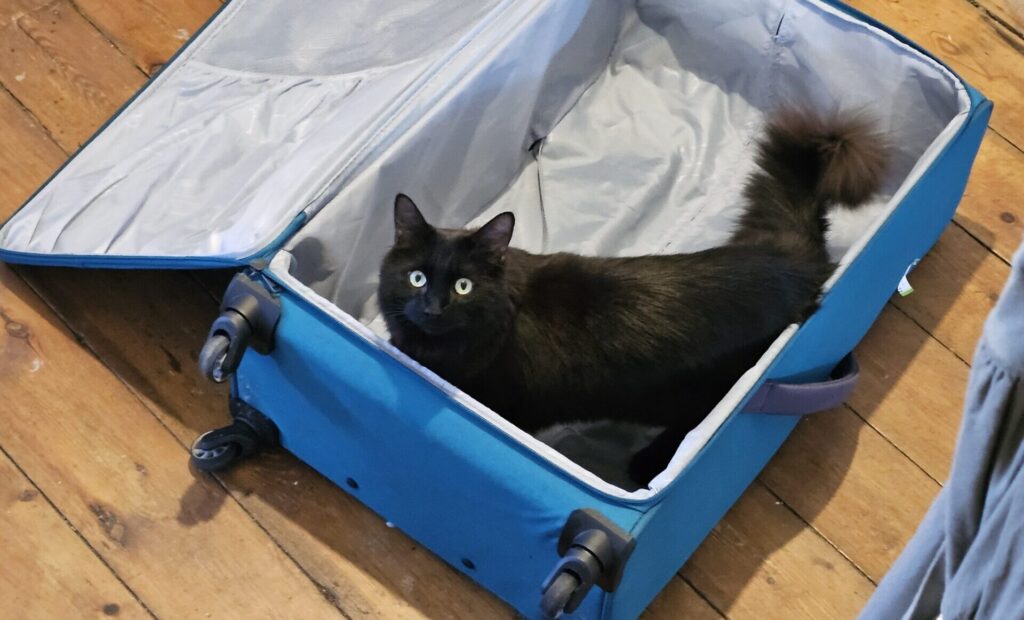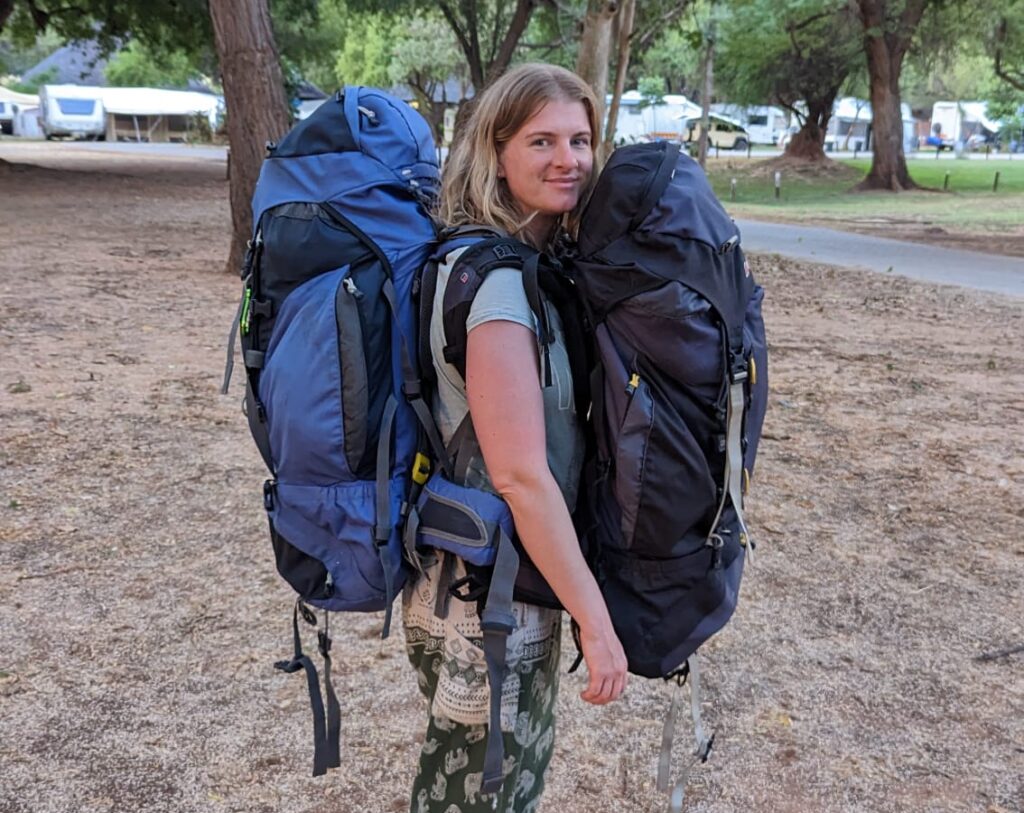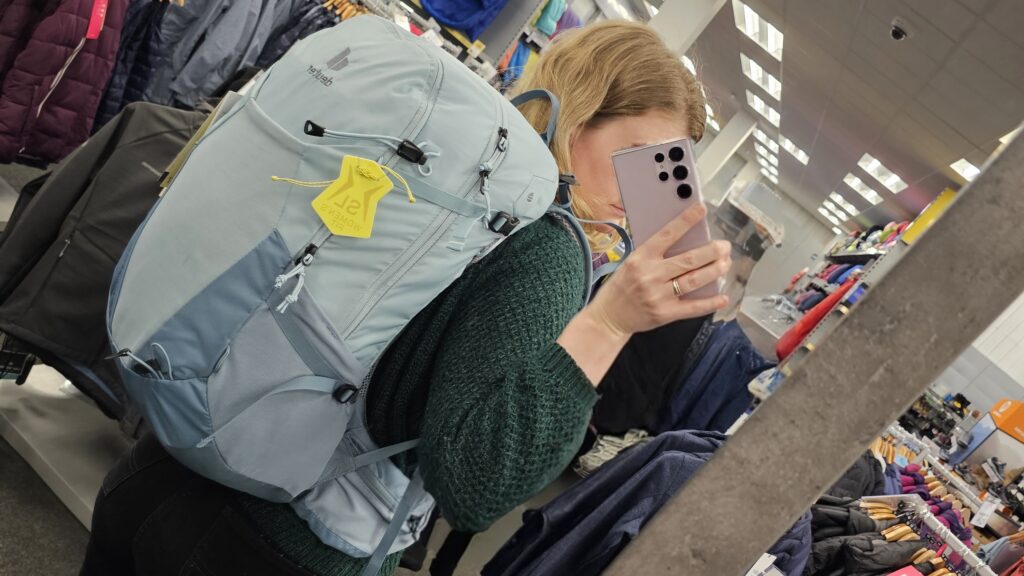Your trip is booked and now you are starting to think about packing for your adventure. There are so many things you may or may not need to take away with you, but the one thing you will need is some form of luggage to carry all your belongings in. But should you go for a suitcase, or the stereotypical travellers backpack, or maybe something else all together. This blog posts dives into the advantages and disadvantages of the different types of luggage and whether a backpack or suitcase is better.
Suitcase
What is a suitcase?
A suitcase is a rectangular piece of luggage with a handle that usually has a set of 2 or 4 wheels to allow it to be easily wheeled along rather than carried. It can be made of a soft material or have a hard shell like case.
Pros
- It can be easily wheeled along, reducing the amount of manual handling you have to do of your suitcase
- It unzips flat allowing you to see all of your belongings and access them quickly and easily
- The hard shell version protects your stuff from heavy handed baggage handlers or if it is stacked underneath other bags
- You can put heavier items in it as you don’t have to worry about the constant lifting
- It is easier to stack and less likely to be caught and ripped when putting it in a luggage hold or when it’s on the conveyor belt at an airport
- Great for elderly or injured people who can’t carry their luggage
- Often has lots of extra zips and pockets to separate out your belongings
- Usually has a larger capacity than a rucksack
- Can be easily locked using just one padlock
- A friend can help wheel your suitcase along if needed, but wouldn’t be able to carry 2 backpacks
Cons
- It is hard work to carry when you need to go up stairs or when entering or exiting public transport
- If you do have to carry it for any period of time, you can injure yourself more easily as the weight is off-balanced because you have to carry it on one side of your body
- Travel snobs may see you as not a ‘real’ traveller (although I don’t think like this)
- It is very noisy to wheel. There have been so many times when I have taken a suitcase to a beautiful cobbled street in Europe, only to get stared at because it breaks the peaceful silence
- Gets stuck easily in pot holes, tram lines and on cobbled streets
- Two wheel versions can be more difficult to control and put more strain on your arm
- The handles and wheels can break easily if someone is heavy handed with them, especially on cheaper suitcases
When is it best to take a suitcase?
Suitcases are best for holidays where you don’t have to walk far or need to get on or off public transport a lot. Single destination breaks or all inclusive types holidays are perfect for a suitcase, as is a longer holiday where you are using the same transport e.g. an organised tour or a driving holiday.

Backpack
What is a backpack?
I actually don’t know the difference between a backpack and a rucksack and I often use these 2 words interchangeably, but I think it may have something to do with the size of the bag. Either way I am referring to a large bag with 2 straps, usually over about 40 litres in size, which can be carried on the back and is made of soft material.
Pros
- It can be carried anywhere, so you don’t have to worry when you are faced with running to catch a bus or climbing a flight of stairs as it sits evenly on your back
- There are lots different pockets to separate out your belongings
- You can easily attach items like shoes or a sleeping bag to the outside of the backpack
- It leaves both hands free to carry other items or open doors
- It can be fairly comfy to lie or sit on when waiting for your transport or sleeping in an airport
- Helps you get fitter because you are constantly walking around with a large weight on your back
- Harder to steal compared to a suitcase as it is literally attached to yourself
Cons
- Overpacked backpacks can be heavy and hot to carry if carrying them for a long time
- Hard to access all of your stuff, you often have to take everything out to find an item of clothing
- It can be difficult to fit through doors with it on your back
- Hard to secure your belongings from theft as there are lots of different pockets and openings which can be easily accessed
- If you have another small bag like a handbag or small daypack, it is tricky to carry the two together on your body
- The straps can get caught on the conveyor belt at an airport
- You are limited by the size and weight that you can personally carry
- Not a lot of protection for your belongings if the bag is squashed or crushed
When is it best to take a backpack?
For journeys involving lots of changing of accommodation, destination or transport, a backpack is the easiest option as it’s so portable. It’s also great when you need to take bulky extras like hiking boots or a tent as there are so many straps, clips and karabiners which you can attach you stuff to on the outside, leaving the inside of the bag free for clothes and toiletries.

Carry-on holdall
Just going on a short break? Just take a carry on bag. This will save you money as most budget airlines charge you to take a larger bag. It will also mean that you don’t have to wait in line to drop off or collect your bags at the airport. Downside is that you have to be strategic when packing to fit the most amount in. Plus you can only take liquids up to 100ml in hand luggage if you are going on a plane. You will also have to carry it around the airport and to your accommodation, so make sure whatever type of carry on bag you choose it is comfortable to carry around.
What luggage is best for a gap year?
There are pros and cons to all types of luggage, and it really depends on the type of trip you are taking and your own personal preference. For short trips, like a multicity break in Europe, then a simple carry-on holdall is perfect as it saves you from the check-in baggage fees most airlines charge. It’s even easier if you are travelling with a friend as you can split things like toiletries or electronics between you both. However, if you are looking to go for longer and take a proper gap year then you will need either a large backpack or suitcase. But which one is best?
A suitcase is larger and it’s easier to access all of your clothes while still having several pockets to separate your belongings. Plus the wheels means it’s less effort to transport. It is great for self-drive trips, organised tours or if you will be staying in high end accommodation. Travelling any of these ways means that you probably won’t have to walk far between your accommodation and transport. You can just wheel your suitcase out of your hotel and throw it into your car or tour bus, then drive to the next destination. Or you may even have a hotel porter or tour guide to help you with your luggage. Suitcases are great for their simplicity, ease of access and manoeuvrability, especially if you are older or unable to carry a bag.
A backpack is best when you know your gap year will involve lots of changing destinations, public transport, hiking, camping or travelling to hilly areas which may have lots of steps. Although it can be heavy to carry, it’s much easier than a suitcase if you are constantly having to rush to catch a bus or hike up hills or if your budget accommodation doesn’t have a lift. Backpacks are also designed for hiking and camping in mind, with multiple attachments on the outside for your tent, sleeping bag or walking boots. Although I have used suitcases in the past when I have travelled, I personally find a backpack much more versatile as you can just chuck it on your back and navigate any terrain, all while having your hands free for other things. Plus it makes for a comfy pillow.
Ultimately it up to you though and what’s easiest for you and your situation. Can you carry 70 litres on your back? Do you need to have your hands free at all times? Are you planning on camping and hiking? Are you travelling alone or with a friend? These are just some of the questions to ask yourself when deciding what luggage will be best for your gap year. And don’t forget to spend time trying out any luggage in the shop before purchase to make sure its the right fit for you.



